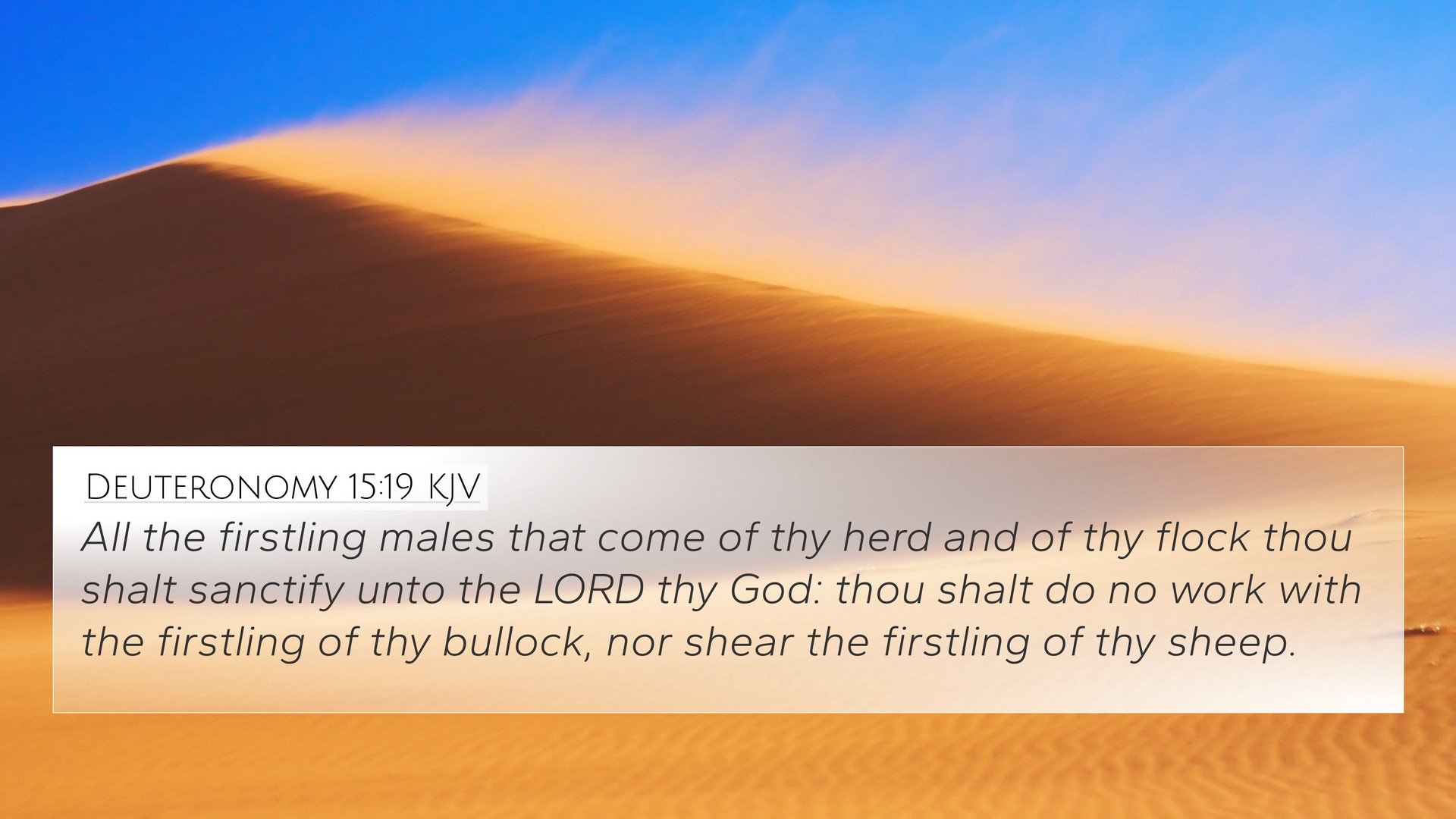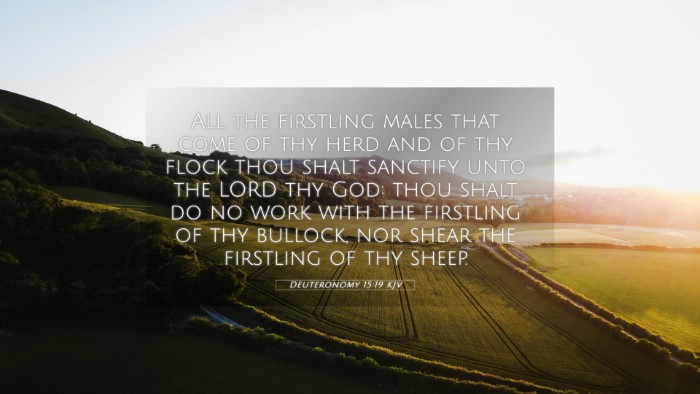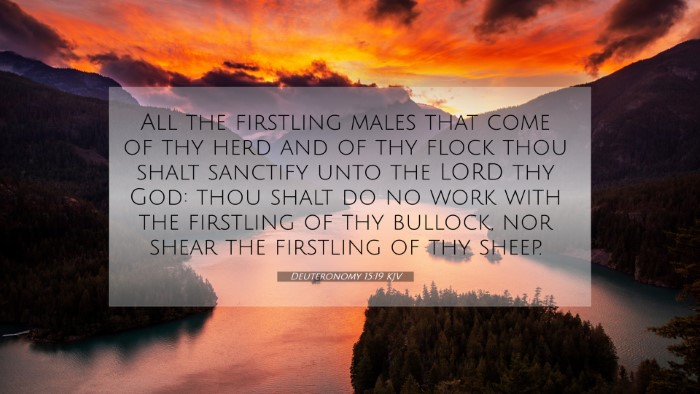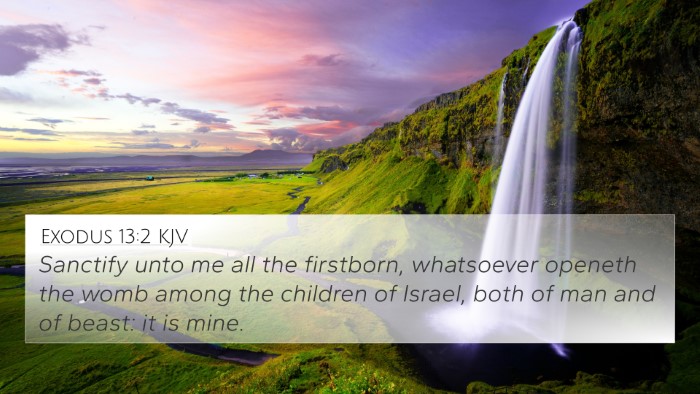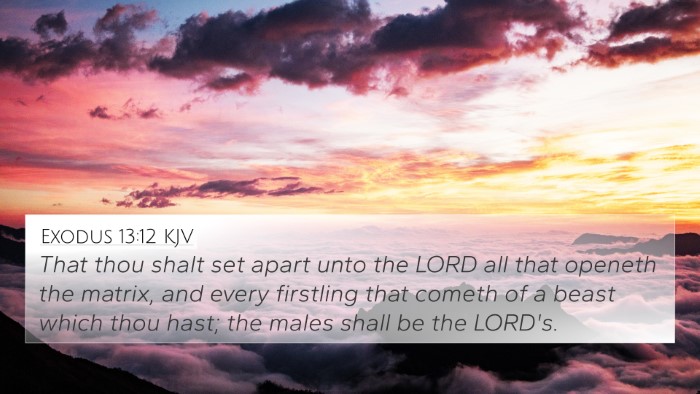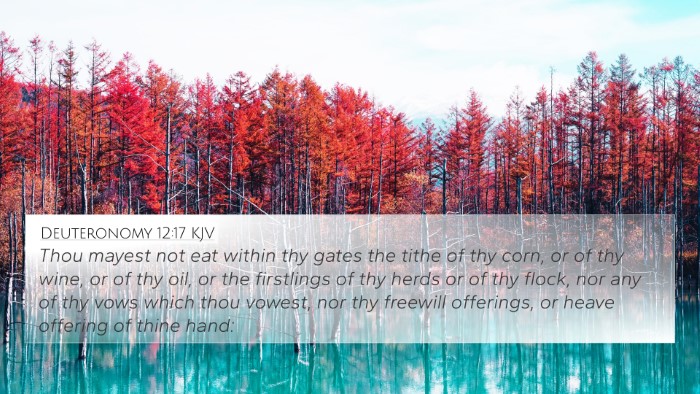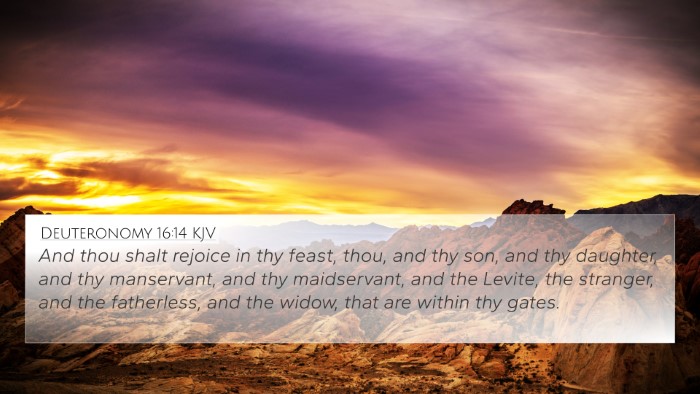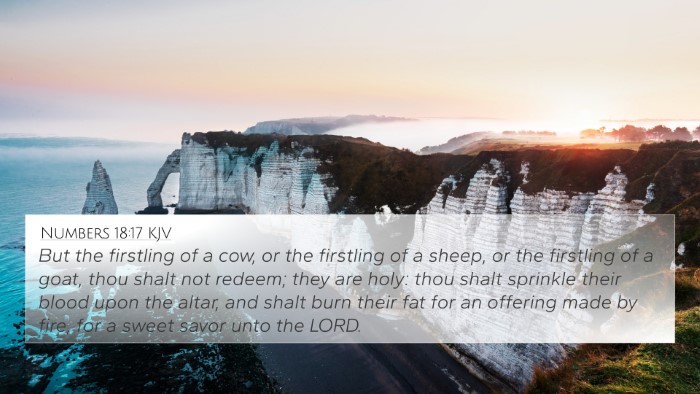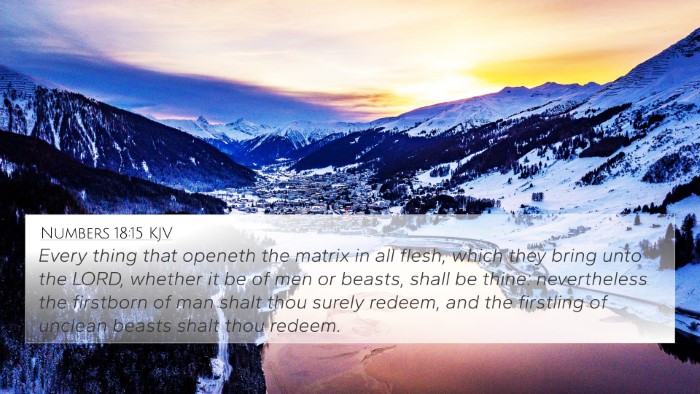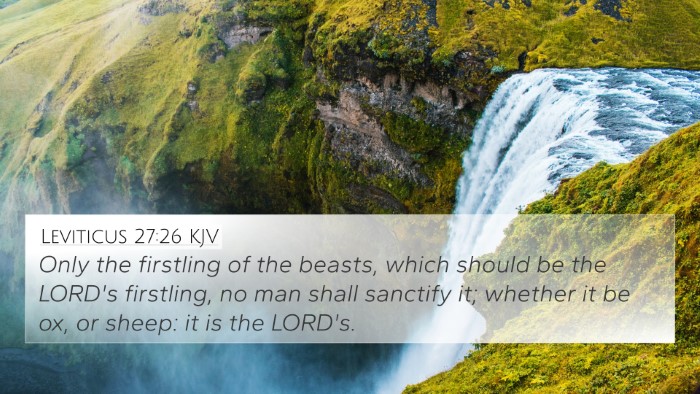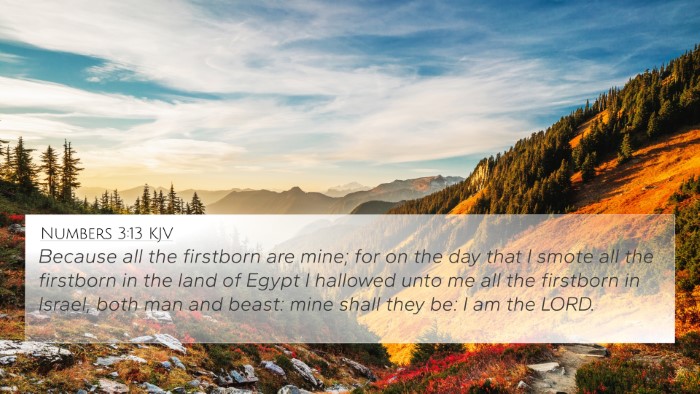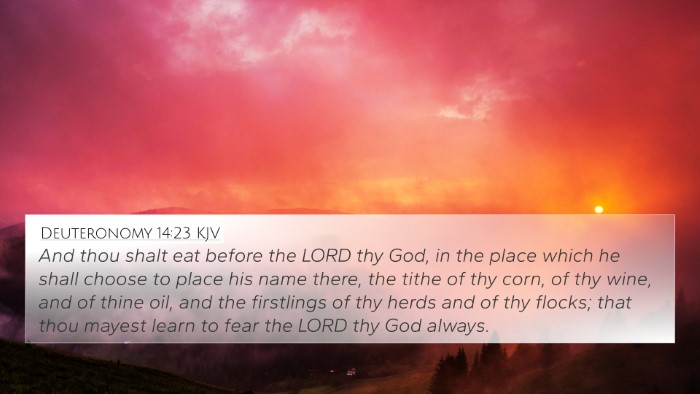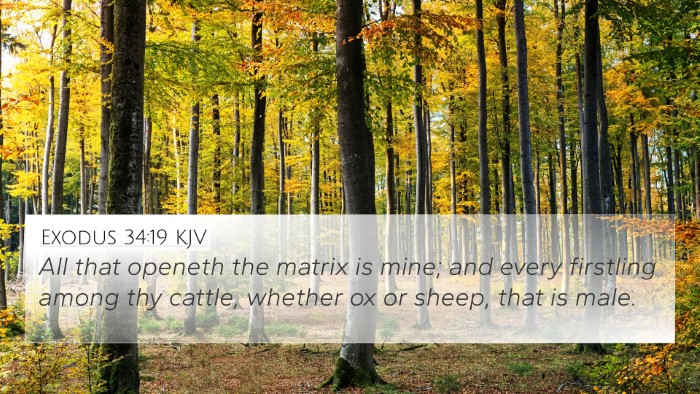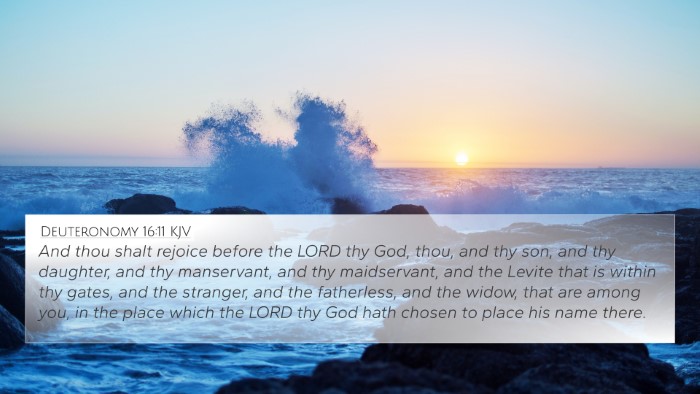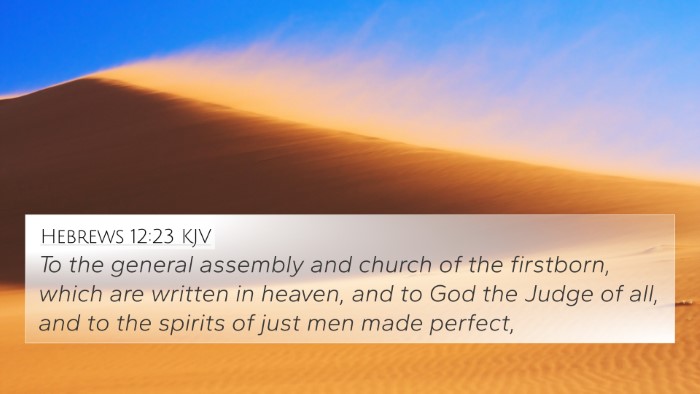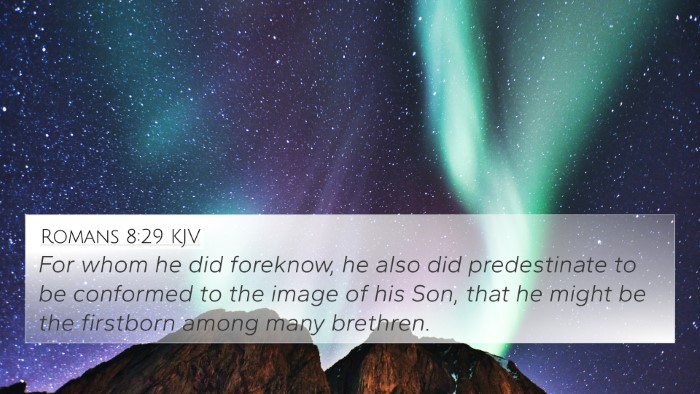Understanding Deuteronomy 15:19
Verse Context: Deuteronomy 15:19 states, “All the firstborn males of your herd and the firstborn males of your flock you shall dedicate to the LORD your God. You shall do no work with the firstborn of your herd, nor shear the firstborn of your flock.” This verse outlines the practice of dedicating the firstborn of livestock to God and reflects the themes of sacrifice, obedience, and divine provision.
Summary of Insights: Commentaries provide valuable insights into this verse by exploring its historical context, theological implications, and practical applications.
Commentary Insights
Matthew Henry
Henry emphasizes the sanctity of the firstborn as a representation of God's claims on the Israelites. He notes that dedicating the firstborn to God is an acknowledgment of God’s sovereignty and blessings. Henry suggests that this practice serves as a reminder of Israel’s deliverance from Egypt, where the firstborn of the Egyptians were struck down, reinforcing the need to honor God in gratitude.
Albert Barnes
Barnes highlights that the law concerning the firstborn illustrates the principle of giving our best to God. He explains that the firstborn represents the best of one’s resources, and by dedicating it to the Lord, the Israelites are called to recognize God's ownership over all that they have. Barnes also mentions that this practice fosters a spirit of sacrifice among the people.
Adam Clarke
Clarke provides insights into the ceremonial aspects of the dedication of the firstborn, noting that this act was not just for individual families, but a collective acknowledgement of God’s providence and favor. He comments on the Israelite's obligation to remember their history and God's miraculous works, using the dedication as a pedagogical tool for future generations.
Thematic Connections
Deuteronomy 15:19 connects to several important themes in Scripture, invoking considerations regarding:
- Obedience to God: This verse reflects the broader call for Israelites to live in accordance with God's commandments.
- Thankfulness: Dedicating the firstborn serves as a continual reminder of God's past deliverances and blessings.
- Sacrifice and Commitment: The act of sacrificing the firstborn symbolizes a commitment to God that requires one's best.
- Divine Ownership: It underscores the theological assertion that everything belongs to God.
Bible Verse Cross-References
To deepen understanding of Deuteronomy 15:19, consider the following cross-references:
- Exodus 13:12-13: Similar instructions regarding the dedication of the firstborn.
- Leviticus 27:26-27: Laws on redeeming the firstborn.
- Numbers 18:15-16: Regulations for redeeming firstborn among Israelites.
- 1 Samuel 1:24-28: Hannah dedicates her firstborn, Samuel, to the Lord.
- Luke 2:22: Mary and Joseph's dedication of Jesus, the firstborn.
- Romans 12:1: Offer your bodies as living sacrifices, an act of worship.
- Hebrews 11:17: Abraham's faith in offering Isaac as a firstborn sacrifice.
Applications and Reflections
In applying Deuteronomy 15:19 today, believers can reflect on the ways they recognize and dedicate their "firstborn" – symbolically representing their best efforts, time, and resources – to God. This verse invites contemplation on our priorities and the extent of our devotion. Questions to ask may include:
- How do I honor God with my best resources?
- What sacrifices am I willing to make in my spiritual life for God?
- In what areas of my life do I need to demonstrate greater obedience?
Conclusion
Deuteronomy 15:19 stands as a rich tapestry of theological and practical insights that encourage believers to dedicate their lives to God wholeheartedly. By cross-referencing with related verses and gleaning insights from public domain commentaries, one can appreciate the timeless relevance of dedicating the first and best of what we have to our Creator.
